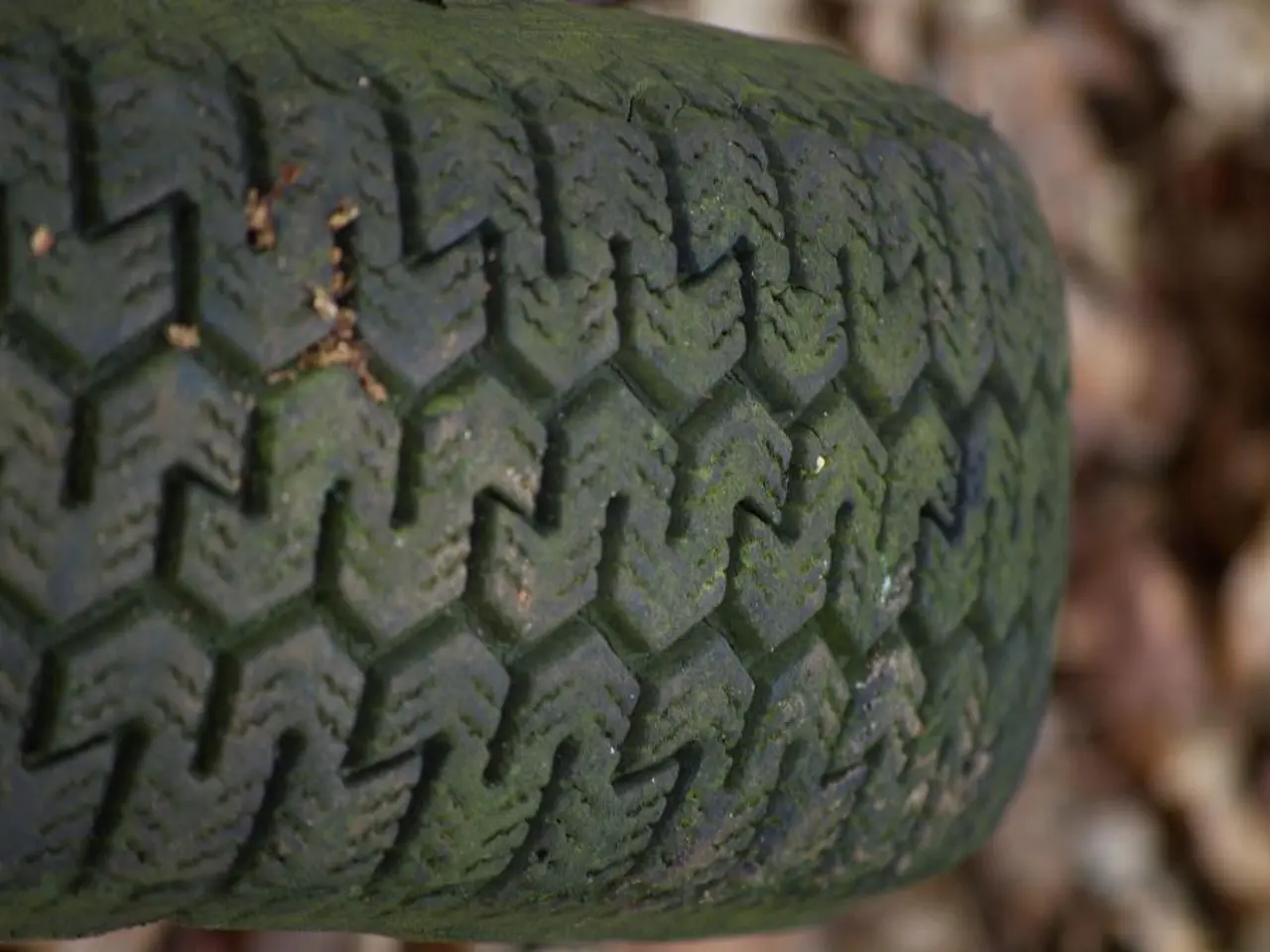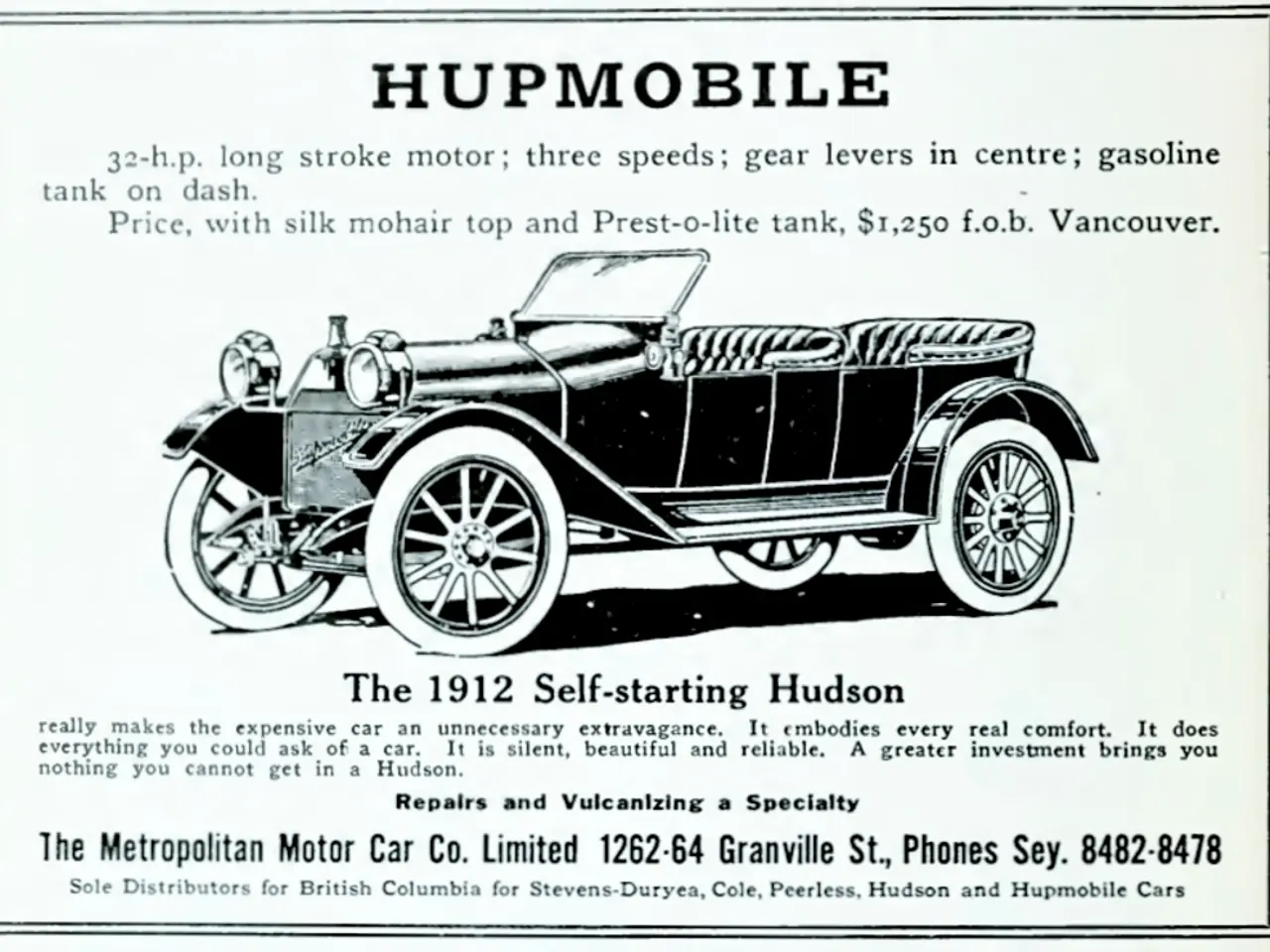Unveiling the innovative approach by the petrochemical sector to tackle the primary challenge electric vehicles have faced in their history
In the rapidly evolving automotive landscape, the tire industry is redefining itself to support the electric vehicle (EV) revolution. As the long-term goal for the industry is to offer solutions that cater to the needs of an EV-dominated world, several key advancements are being made to address the unique challenges posed by electric vehicles.
One such challenge is premature tire wear. To combat this issue, current technological innovations focus on reinforced tire construction and stronger sidewalls. EV tires are designed with stiffer sidewalls and reinforced internal construction to manage the heavier battery weight and handle the instant torque, which reduces deformation and uneven wear during cornering and acceleration.
Another area of focus is the development of advanced rubber compounds. Specialized rubber compounds are created to be more “sticky” to handle the high torque without excessive wear while maintaining low rolling resistance to maximize vehicle range.
Unique tread patterns are also being optimized to improve grip and wear resistance under high torque, reduce road noise, and improve efficiency. Smart tire technologies, such as sensors embedded within tires that continuously monitor parameters like pressure, temperature, and tread wear, provide real-time feedback to the vehicle and driver to optimize conditions and extend tire life.
Regular tire maintenance practices, like monitoring tire pressure or regularly rotating them at manufacturer-recommended intervals, help even out wear caused by EV torque characteristics, prolonging tire lifespan. Noise-reducing and comfort technologies, like acoustic foam layers bonded inside tires, help reduce road noise and vibrations, indirectly benefiting tire longevity by preventing uneven wear due to irregular contact with the road surface.
Emerging manufacturing techniques like 3D printing enable customization of tire design tailored to specific EV models and driving conditions, which can improve wear performance. The tire composition in EVs is also being tailored for silence and comfort, which can sometimes be less resilient. To address this, fiber-reinforced composites are often integrated into the carcass or tread to increase robustness while minimizing weight, thus ensuring extended tire longevity.
Advances in bio-based materials and recycling technology aim to create tougher and longer-lasting tires with a reduced environmental impact. The use of bio-based elastomers reinforced with plant fibers or biomass derivatives in tires is becoming more common. Advanced polymers like high-shear polybutadiene and thermoplastic polyurethane (TPU) are also being integrated into the tires to offer better abrasion and wear resistance.
Collaborations between the automotive and tire industries will continue to advance standards by offering solutions that meet both ecological and economic needs. Manufacturers like Michelin, Bridgestone, and Goodyear are developing specific tires for electric vehicles. The future of tires in an EV-dominated world hinges on balancing durability, performance, and fine particle emissions.
Adopting specialized tires, often more expensive, becomes essential for ensuring safe and economical driving in an EV-dominated world. Innovations in tire technology for EVs aim to ensure tires are durable, essential for tomorrow's mobility. The tire industry is striving to meet the demands of the EV revolution, ensuring a smooth and sustainable ride for the future.
- The tire industry, aligning with the advancements in the electric vehicle (EV) industry, is focusing on technological innovations to combat premature tire wear, addressing unique challenges posed by electric vehicles.
- In response to the heavier battery weight and instant torque in electric vehicles, EV tires are being designed with stiffer sidewalls and reinforced internal construction.
- To optimize grip, wear resistance, and efficiency under high torque, advanced rubber compounds and tread patterns are being developed, while smart tire technologies monitor parameters for optimal conditions and longevity.
- In addition to technological developments, regular maintenance practices like monitoring tire pressure and rotating tires at recommended intervals help prolong tire lifespan in electric vehicles.
- Collaborations between the automotive and tire industries are crucial for developing specialized tires for electric vehicles, ensuring durability, performance, and a reduced environmental impact.




